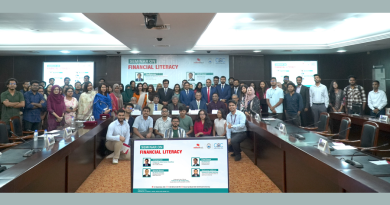OQ Trading International of Oman has proposed building a floating storage and regasification unit (FSRU) at Moheshkhali in the Bay of Bengal to help Bangladesh overcome its growing natural gas supply constraints.
The company has already submitted a plan to state-run Petrobangla for the FSRU, which would have a capacity of around 3.75 million tonnes per year, under a build-own-operate-and-transfer (BOOT) model.
“We’ve received a proposal from OQ Trading to build an FSRU and are currently scrutinising it,” Petrobangla Chairman Md Reznur Rahman said on Saturday.
Rising gas crisis
Officials said Bangladesh urgently needs additional FSRUs and land-based LNG terminals to cope with declining domestic gas output. Local gas production has fallen to about 1,800 million cubic feet per day (mmcfd) — a level last seen in 2008–09. Output peaked in FY2016–17, with the highest-ever daily production of 2,786 mmcfd recorded on May 6, 2015, according to Petrobangla.
Currently, Bangladesh operates two FSRUs, with regasification hovering around 1,050 mmcfd, close to their combined capacity of 1,100 mmcfd. “If new FSRUs or land-based LNG terminals are not built, Bangladesh will have to face a severe gas crisis very soon,” warned energy expert Prof Ijaz Hossain.
LNG supply deals with OQ
The proposal comes just weeks after Bangladesh signed its first short-term LNG supply deal with OQ Trading. Under the agreement, Bangladesh will import 17 cargoes between August 2025 and December 2026 — five in 2025 and 12 in 2026.
For the first time, LNG will be purchased at prices linked to the Japan Korea Marker (JKM), with a premium of 15 cents per MMBtu, providing an alternative to Brent-linked long-term contracts.
Bangladesh already has two long-term deals with OQ Trading: one signed in 2018 for up to 1.5 million tonnes per year until 2029, and another signed in 2023 covering 2026–2035, with volumes rising to 1.5 million tonnes annually from 2029 onward.
Since its first LNG delivery in January 2019, OQ Trading has supplied Bangladesh with 125 cargoes, totalling about 7.8 million tonnes as of July 2025.






